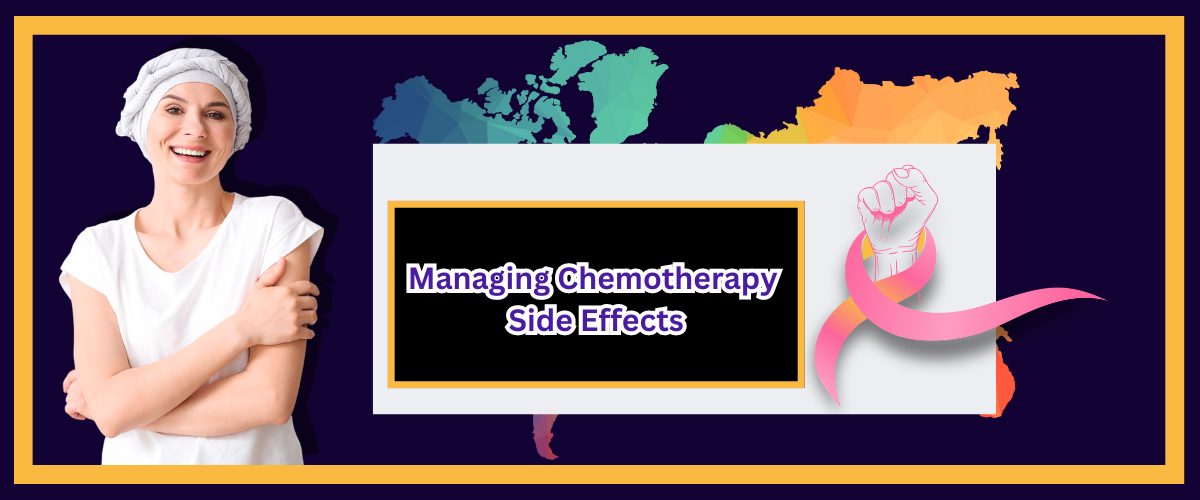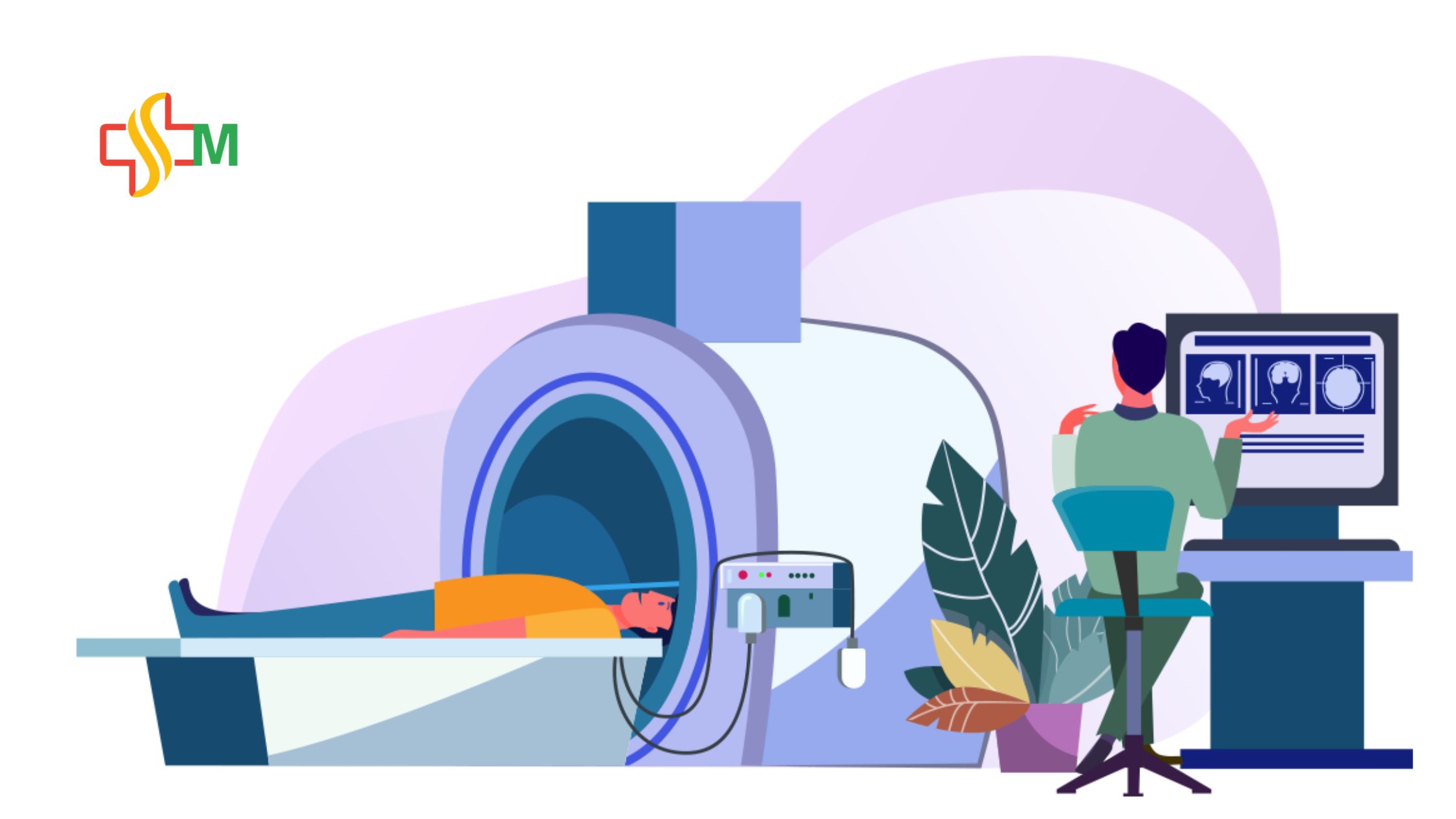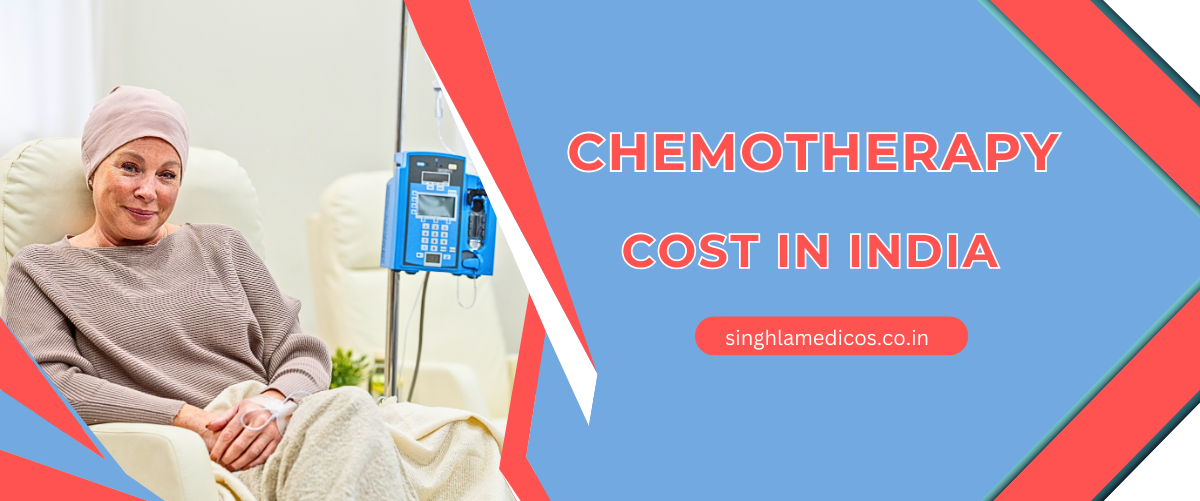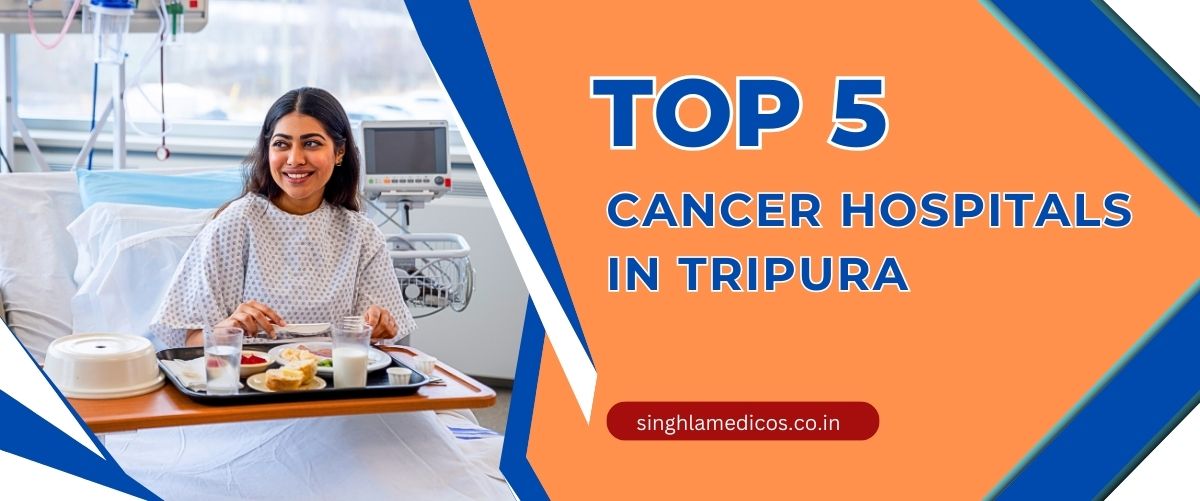BLOG
Managing Chemotherapy Side Effects: Your Comprehensive Guide to Navigating Treatment Challenges

Chemotherapy is a cornerstone in the fight against cancer, but it often brings along a host of side effects that can significantly impact a patient’s quality of life. Understanding and managing these side effects effectively is crucial to maintaining a better quality of life throughout treatment. In this blog, we'll explore practical strategies for managing chemotherapy side effects and provide tips to help you or your loved one navigate this challenging journey.
Understanding Chemotherapy and Its Side Effects
Chemotherapy works by targeting rapidly dividing cancer cells. Unfortunately, this approach can also affect other fast-growing cells in the body, leading to a range of side effects. These can vary based on the type of chemotherapy, dosage, and individual patient factors.
Common Side Effects of Chemotherapy
1. Nausea and Vomiting: One of the most well-known side effects, nausea and vomiting can be managed with medications and dietary adjustments.
1. Fatigue: Persistent tiredness can make daily activities challenging, but there are ways to manage and alleviate this symptom.
2. Hair Loss: While temporary, hair loss can be distressing. There are various ways to cope, from wigs to scarves.
3. Appetite Changes: Chemotherapy can alter taste and appetite. Small, frequent meals and nutritional supplements can help maintain energy levels.
4. Mouth Sores: These painful sores can make eating and speaking difficult. Rinses and special oral care products can offer relief.
5. Increased Risk of Infection: Chemotherapy can weaken the immune system, making patients more susceptible to infections.
Effective Strategies for Managing Chemotherapy Side Effects
1. Managing Nausea and Vomiting
Nausea and vomiting are common but manageable. Your healthcare provider can prescribe anti-nausea medications such as ondansetron or metoclopramide. Additionally, consider these tips:
- Stay Hydrated: Sip on clear liquids like water, ginger ale, or herbal teas to keep hydrated.
- Avoid Strong Odors: Prepare and consume food in well-ventilated areas to avoid triggering nausea from strong smells.
2. Combatting Fatigue
Fatigue during chemotherapy can be overwhelming, but it’s possible to manage it with some strategies:
- Prioritize Rest: Schedule regular rest periods and avoid overexerting yourself.
- Exercise Regularly: Gentle exercise, like walking or stretching, can help boost energy levels.
- Stay Hydrated and Eat Well: A balanced diet and proper hydration can contribute to overall energy levels.
3. Coping with Hair Loss
Hair loss can be emotionally challenging. Here’s how to handle it:
- Consider Wigs and Headwear: Wigs, scarves, and hats can help you feel more comfortable and confident.
- Use Gentle Hair Products: Opt for mild shampoos and conditioners to reduce irritation.
- Allow Time for Adjustment: Accepting hair loss as part of the treatment process can help you adjust more easily.
4. Addressing Appetite Changes
Chemotherapy can alter taste and appetite, but you can manage these changes with some adjustments:
- Try New Foods: Experiment with different flavors and textures to find what appeals to you.
- Eat Nutrient-Dense Foods: Incorporate high-calorie, high-protein foods to maintain energy and weight.
- Consult a Dietitian: A registered dietitian can provide personalized advice and meal planning.
5. Alleviating Mouth Sores
Mouth sores can be painful and make eating difficult. Here’s how to manage them:
- Use Oral Rinses: Rinsing with a saltwater or baking soda solution can help soothe sores.
- Avoid Irritants: Steer clear of spicy, acidic, or rough-textured foods that can irritate the mouth.
- Maintain Oral Hygiene: Brush your teeth with a soft-bristled brush and use non-alcoholic mouthwashes.
6. Reducing the Risk of Infection
Chemotherapy can weaken the immune system, increasing infection risk. Protect yourself with these practices:
- Practice Good Hygiene: Wash your hands frequently and avoid close contact with sick individuals.
- Monitor Your Health: Report any signs of infection, such as fever or unusual symptoms, to your healthcare provider immediately.
- Avoid Crowded Places: Minimize exposure to large groups and public places to reduce the risk of infection.
Additional Support and Resources
Navigating chemotherapy can be overwhelming, but there are many resources available to support you:
- Support Groups: Connecting with others going through similar experiences can provide emotional support and practical advice.
- Counseling Services: Professional counseling can help you cope with the emotional aspects of cancer treatment.
- Patient Education: Many hospitals and cancer centers offer educational materials and programs to help you understand and manage side effects.
Conclusion
Managing chemotherapy side effects involves a combination of medical intervention, lifestyle adjustments, and emotional support. By understanding the common side effects and implementing effective management strategies, you can improve your quality of life during treatment. Remember, open communication with your healthcare team is key to addressing any concerns and adjusting your care plan as needed. With the right approach, you can navigate this challenging time with resilience and hope.
-
 Asviia Injection
Asviia Injection
₹22,401.00Original price was: ₹22,401.00.₹16,100.00Current price is: ₹16,100.00. -
 Bdpazo 400mg Tablet
Bdpazo 400mg Tablet
₹3,510.00Original price was: ₹3,510.00.₹2,850.00Current price is: ₹2,850.00. -
 Bevacirel 400mg Injection
Bevacirel 400mg Injection
₹56,889.56Original price was: ₹56,889.56.₹12,500.00Current price is: ₹12,500.00.
FAQ: Managing Chemotherapy Side Effects
1. What are the most common side effects of chemotherapy?
Common side effects of chemotherapy include nausea and vomiting, fatigue, hair loss, changes in appetite, mouth sores, and an increased risk of infection. The severity and occurrence of these side effects can vary depending on the type of chemotherapy and individual patient factors.
2. How can I prevent or reduce nausea and vomiting from chemotherapy?
To manage nausea and vomiting, your doctor may prescribe anti-nausea medications. You can also try:
- Eating small, frequent meals.
- Drinking clear fluids like water, ginger ale, or herbal teas.
- Avoiding strong food odors.
- Eating bland, easily digestible foods.
3. What are some effective ways to handle chemotherapy-related fatigue?
Managing fatigue involves several strategies:
- Prioritize rest and avoid overexertion.
- Engage in light, regular exercise, like walking, to boost energy.
- Ensure a balanced diet and stay hydrated.
- Break tasks into smaller steps and take frequent breaks.
4. How should I deal with hair loss during chemotherapy?
Hair loss can be managed by:
- Wearing wigs, scarves, or hats for comfort and confidence.
- Using gentle hair care products to minimize scalp irritation.
- Preparing for hair loss before it starts can make the transition easier.
5. What can I do if I experience changes in my appetite or taste?
To address changes in appetite and taste:
- Experiment with different flavors and textures to find appealing foods.
- Eat small, frequent meals and snacks to maintain energy.
- Consult a dietitian for personalized meal planning and nutritional advice.
6. How can I alleviate mouth sores caused by chemotherapy?
Relieve mouth sores with:
- Rinsing your mouth with saltwater or baking soda solutions.
- Avoiding spicy, acidic, or abrasive foods.
- Using soft-bristled toothbrushes and non-alcoholic mouthwashes for oral care.
7. What steps can I take to lower my risk of infection during chemotherapy?
To reduce infection risk:
- Practice good hand hygiene and avoid touching your face.
- Steer clear of crowded places and individuals who are sick.
- Monitor for signs of infection, such as fever, and report them to your healthcare provider promptly.
8. Are emotional changes common during chemotherapy, and how can I cope?
Emotional changes are common due to the stress of cancer treatment. Coping strategies include:
- Seeking support from friends, family, or a therapist.
- Joining support groups for cancer patients.
- Practicing stress-relief techniques such as meditation, journaling, or relaxation exercises.
9. What resources are available for managing chemotherapy side effects?
Resources include:
- Educational materials provided by your healthcare team or cancer center.
- Support groups and counseling services for emotional and practical support.
- Nutritionists or dietitians for dietary advice tailored to your needs.
10. When should I contact my healthcare provider about side effects?
Contact your healthcare provider if you experience:
- Severe or persistent side effects.
- New or worsening symptoms, such as high fever or unusual pain.
- Concerns about how side effects are impacting your daily life and overall well-being.
How Immunotherapy Is Changing Cancer Treatment
-
Posted by
admin
- 0 comments
Leukemia: Symptoms, Signs, Causes, Types, & Treatment
-
Posted by
admin
- 0 comments
Understanding Cancer Staging: What It Means for Treatment Options
-
Posted by
admin
- 0 comments
Understanding the Combination of Temozolomide and Radiation Therapy
-
Posted by
singhladistributors
- 0 comments
What is the cost of Chemotherapy in Chennai
-
Posted by
admin
- 0 comments
The Cost of Chemotherapy in Pune: A Comprehensive Guide
-
Posted by
admin
- 0 comments
Understanding Chemotherapy Cost in India: Key Insights
-
Posted by
admin
- 0 comments
What is the cost of Chemotherapy in Hyderabad?
-
Posted by
Rahul Rai
What is the cost of Chemotherapy in Mumbai?
-
Posted by
admin
- 0 comments
The Cost of Chemotherapy in Delhi
-
Posted by
admin
- 0 comments
Top 5 Cancer Hospitals in Tripura
-
Posted by
admin
- 0 comments
Top 5 Cancer Hospitals in Mizoram
-
Posted by
admin
- 0 comments













